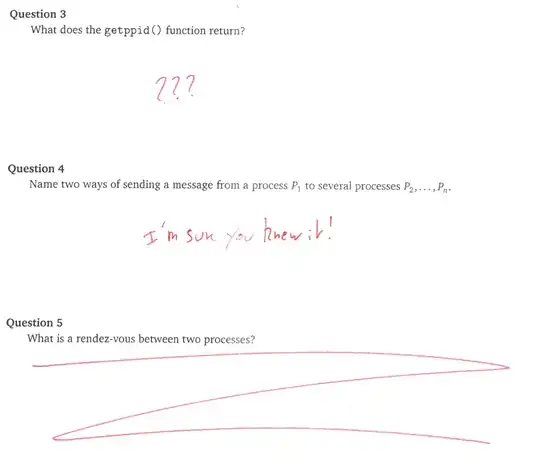I mark papers for several classes. Many are permitted an opportunity to correct minor mistakes. This allows a student whose mastery and knowledge are on the borderline between two grades, to demonstrate whether they are above or below that boundary.
This is not an opportunity to edit and improve the submission by a significant margin, or to answer parts of the assignment/test/exam they avoidedd the first time through.
Indicating the complete absence of a response in any page is done with a full diagonal line across the page, sometimes with a symbol personal to the marker, like a W or S or X or #.
Indicating the end of an answer is done with a horizontal line immediately beneath the end of the answer, followed by the same diagonal line in the remaining space, if any exists.
Where an answer takes up a small portion of the page, it may be boxed and the remaining space again slashed out.
Diagrams, charts and key statements may be circled, then ticked right or marked wrong, to prevent later alterations and improvements in that particular area.
Any text crossed out by the student is circled and annotated as such, to avoid claims of a marker having ignored it. Crossed-out responses that are correct and legible may be considered valid and marked like any other; this avoids the claim that the answer was legible and "someone else" changed it before marking.
Finally, marked papers are kept under supervision at all times when the student is fixing the minor errors. Any paper leaving the controlled space is no longer available to resubmit. Some papers are kept secure and only a copy is given, and only when requested, and only with the intent of deciding whether to appeal a grade.

It also feels less personal than a gigantic cross through the whole answer section.
– adfriedman Nov 09 '17 at 05:25